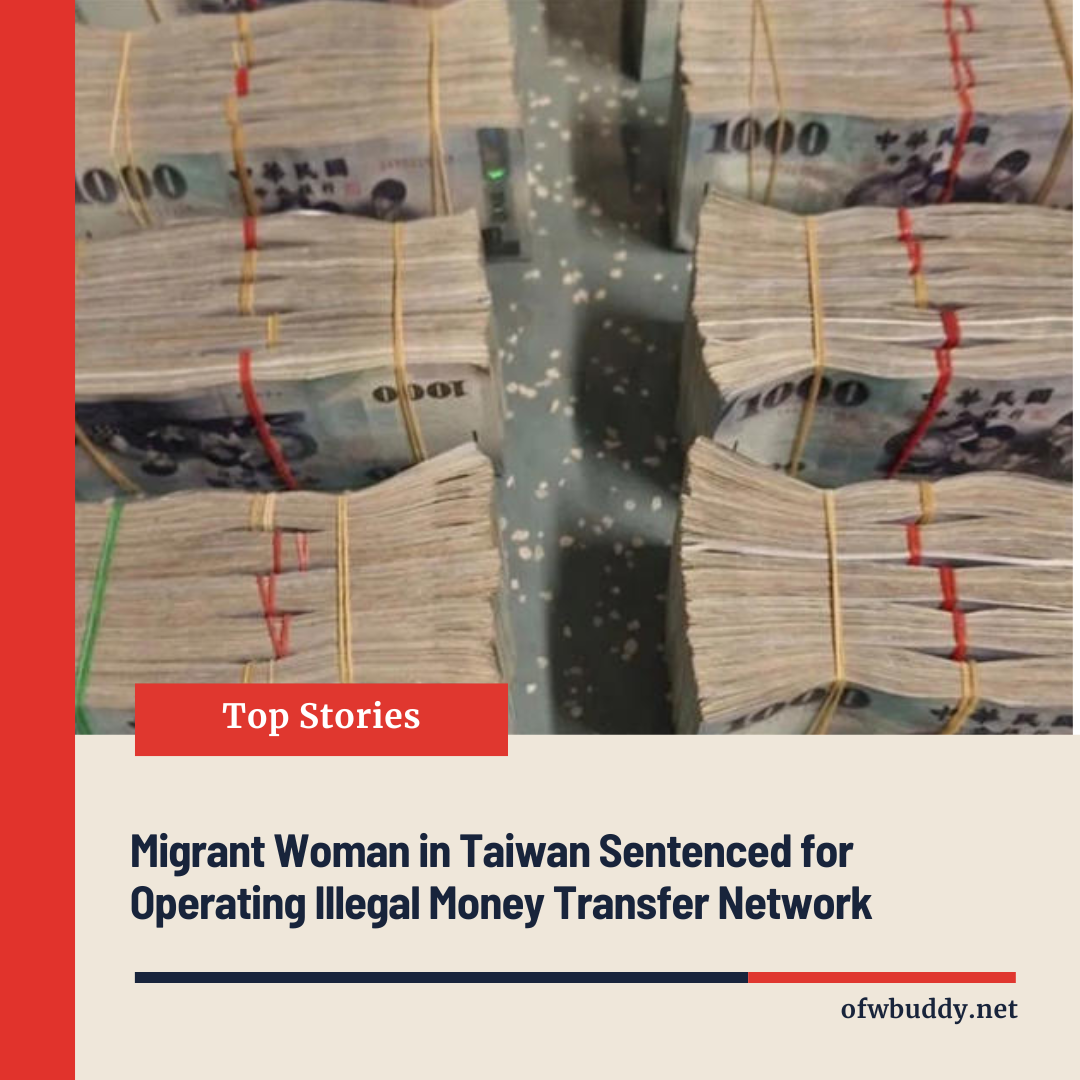MIAOLI, October 6, 2025 — A Vietnamese woman surnamed Li, who married and settled in Taiwan, has been sentenced by the Miaoli District Court to two years and six months in prison for her role in an illegal underground money transfer scheme that funneled more than NT$210 million to Vietnam in less than two years.
Li was found guilty of collaborating with a man surnamed Xie—whose trial is still ongoing—and several unidentified accomplices, including individuals using aliases such as “Vivo,” “Scott,” “Zoe,” and “Nguyen Thi Yan’er.” Together, they ran an unauthorized remittance business between November 25, 2022, and their eventual arrest on July 22, 2024.
According to the court, Li used Vietnamese online banking platforms to transfer money on behalf of clients, primarily fellow Vietnamese workers in Taiwan, who sought to send earnings back home. By collecting commissions and exploiting exchange rate differences, the group handled large sums outside the formal financial system, violating Taiwan’s Banking Act.
Li also recruited another Vietnamese woman, identified by the pseudonym Xiaoyan, to assist with the operation. Xiaoyan accepted small commissions—around NT$80 per transaction—to facilitate remittances through online banking channels.
During the investigation, authorities discovered that Li had received over NT$328,000 in illegal profits, while Xiaoyan earned more than NT$15,000. The court ordered the confiscation of these amounts, except for portions eligible for restitution to victims.
In sentencing, the judge noted that Li had a prior criminal record for gambling and demonstrated poor conduct, warranting a custodial sentence. She was therefore given two years and six months in prison, and her illegal earnings were confiscated.
In contrast, Xiaoyan admitted her wrongdoing, returned the money she earned, and displayed remorse. Taking these factors into account, the court sentenced her to one year in prison, suspended for four years. During her probation, she must complete 90 hours of community service, attend three legal education sessions, and remain under supervised guidance to ensure rehabilitation.
The Miaoli District Court emphasized that underground money transfers undermine Taiwan’s financial order and could be exploited for money laundering or other illegal activities. The court urged migrant communities to use legitimate remittance channels and warned that similar violations would be met with strict legal consequences.

